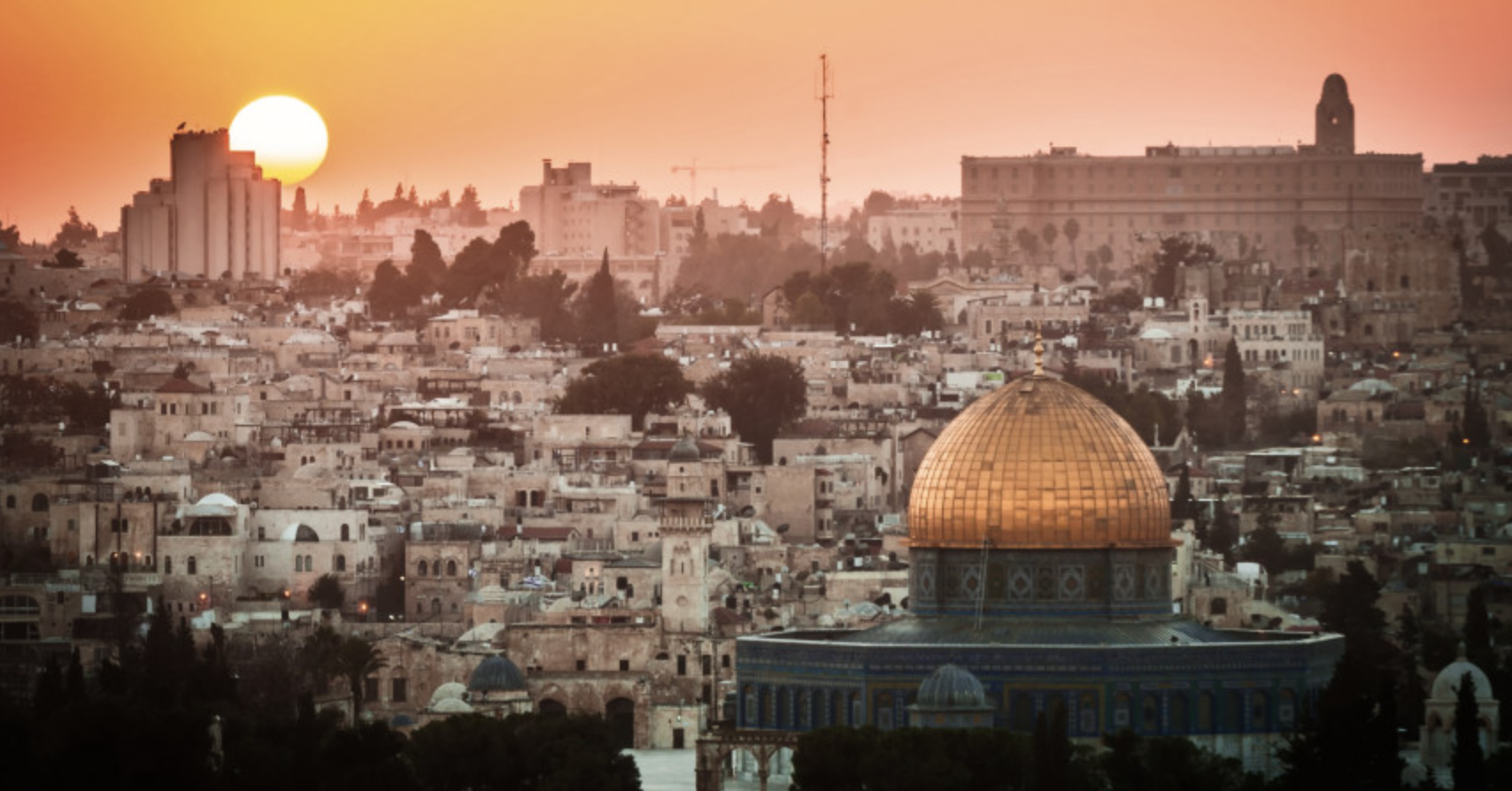Jerusalem is far more than a dot on the political map. It stands as a sacred symbol at the heart of an ideological and theological struggle, where Jewish prophecies, Islamic sanctity, and the ambitions of global powers intersect. Through history, faith and conflict have been deeply intertwined in this city, making it a battleground for claims of divine destiny and political control.
In Jewish theology, Jerusalem is the centerpiece of eschatological hopes. Prophecies call for the rebuilding of the so-called 'Third Temple' on the exact site of Al-Aqsa Mosque, to fulfill the return of the 'Chosen People' to the 'Promised Land.' Institutions like the Temple Institute work fervently toward this vision—crafting ritual tools and training priests—awaiting the removal of Al-Aqsa to make way for their sacred structure.
This vision is further driven by Christian Zionist evangelicals in the West, especially the United States, who believe the rebuilding of the Temple is a precondition for the second coming of Christ and the climactic battle of Armageddon. These theological motives have shaped real-world policies, such as relocating embassies to Jerusalem and offering political cover to Israel’s expansionist agenda.
Muslims view Jerusalem through a profoundly spiritual lens. It is the site of Al-Aqsa Mosque, Islam’s third holiest place, and the destination of the Prophet Muhammad ﷺ on his Night Journey (Isra and Mi'raj). The Quran declares it a blessed land: “Glory be to Him who took His servant by night from Al-Masjid Al-Haram to Al-Masjid Al-Aqsa, whose surroundings We have blessed” [Surah al-Isra: 1].
To Muslims, Jerusalem is not merely a national symbol; it is a sacred trust. Abandoning it is abandoning part of the Islamic creed. When Umar ibn Al-Khattab entered the city peacefully and granted rights to its people through the 'Covenant of Umar,' he set a timeless example of Islamic justice and dignity.
Just as Jews await a temple built on shaky scripture, Muslims possess authentic prophecies about the eventual liberation of Al-Quds. These promises are contingent on faith and struggle—not fantasy. The Prophet ﷺ said, “A group of my Ummah will remain victorious upon the truth... and they will be in Jerusalem and its surroundings” [Ahmad].
Scholars such as Imam Ibn Kathir interpreted the verse: “If you return [to sin], We will return [to punishment]” [Surah al-Isra: 8] as both a warning to the Children of Israel and a promise to the believers: that divine support follows repentance and reform. The path to liberation is not mystical—it begins with revival of faith.
The wound of Jerusalem deepens when hijacked by others under false banners of resistance. Certain Shia militias, backed by Iran, raise slogans for Palestine while targeting Sunni populations across Iraq, Syria, Lebanon, and Yemen. They haven’t fired at Tel Aviv, but have devastated mosques, homes, and refugee camps with far greater brutality than the occupation itself.
Much of their so-called resistance is mere posturing, meant to polish Tehran’s image or protect their ideological interests. Their actions are reactive, not strategic; sectarian, not sincere. Even events like “Quds Day” serve more as instruments of Shia expansionism than genuine concern for Palestine.
In core Twelver Shia theology, Jerusalem holds no sacred precedence over sites like Karbala or Najaf. Ayatollah Khomeini went so far as to proclaim, “Karbala is greater than Makkah and Madinah.” With such beliefs, how can they claim guardianship over Al-Aqsa?
Renowned scholars, including Ibn Baz, Al-Albani, Al-Qaradawi, and the Muslim Scholars Association, have warned against empowering those who revile the companions or distort the creed. The true liberation of Al-Quds lies with the unified Sunni Ummah, grounded in authentic belief, not hollow sectarianism.
Today, deception runs deep. Propaganda clouds vision, and the real enemy hides behind illusions. Those who truly seek to free Jerusalem must first liberate their hearts from innovation, their intentions from hypocrisy, and their methods from division. Al-Quds will never be reclaimed through poetry, conferences, or slogans, but through faith, struggle, and unity.
Finally, those who believe that normalization, border deals, or appeasement will pacify the occupier are deceiving themselves. These treaties, regardless of diplomatic pomp, mean little to a Zionist movement founded on supremacy, expansion, and disregard for treaties.
Can any Muslim nation entrust its future to a people Allah described as perpetual breakers of promises? “Every time they make a covenant, a group among them breaks it” [Surah al-Baqarah: 100] and “So for their breaking of the covenant, We cursed them and hardened their hearts” [Surah al-Ma’idah: 13]. History confirms the divine truth: betrayal is not an exception—it’s the norm.
Despite some attempts to justify these failures as political necessities, the Muslim Ummah must awaken. The enemy remains. The battle is far from over. Victory will not come through surrender—but by returning to our faith, reclaiming our history, and reviving our courage.
As King Faisal bin Abdulaziz wisely stated: “Our battle with Israel is not about borders—it is about existence.”












